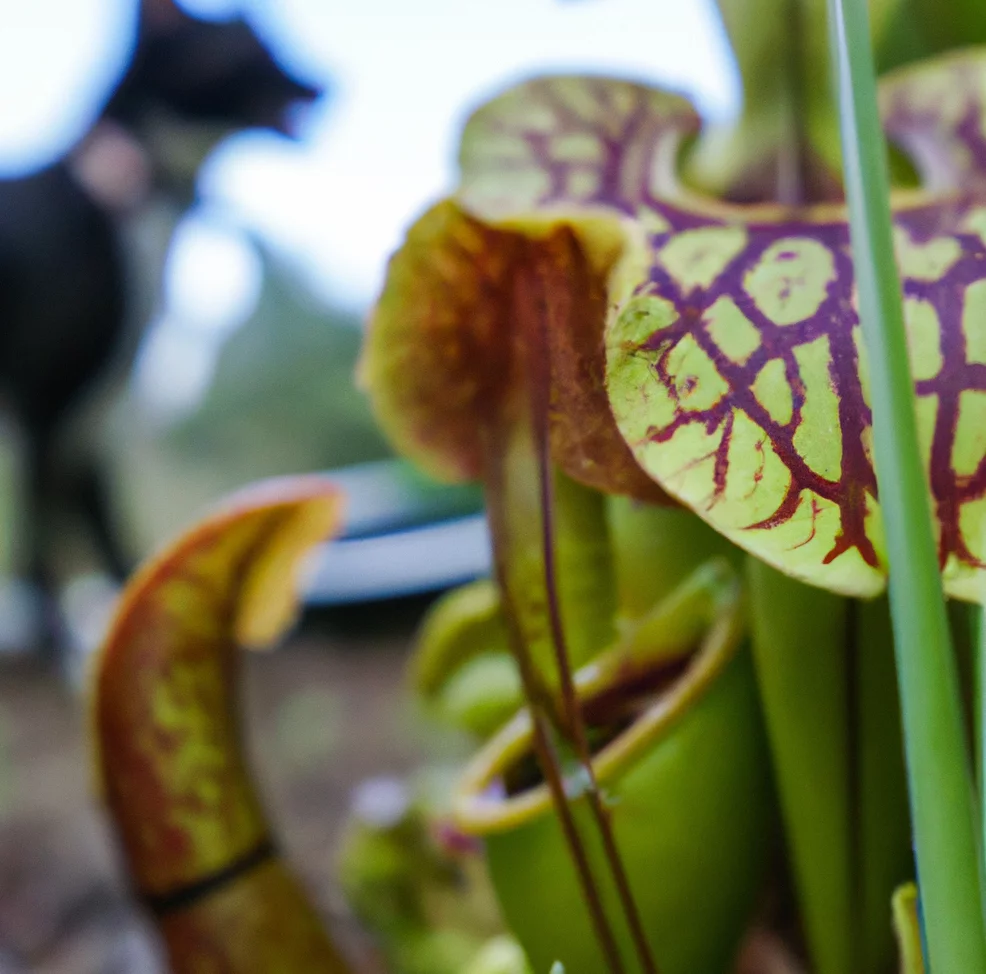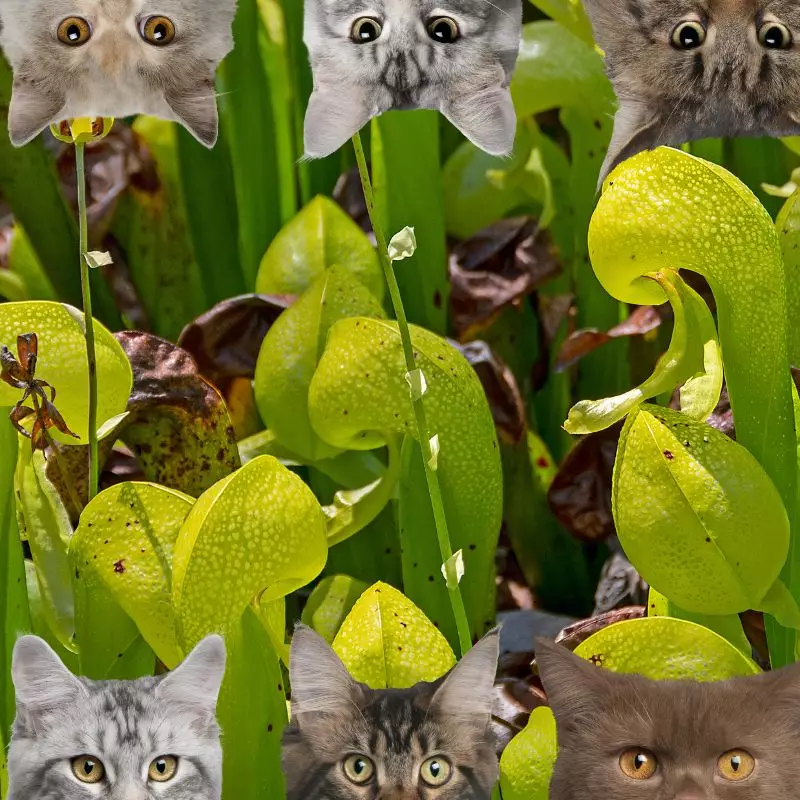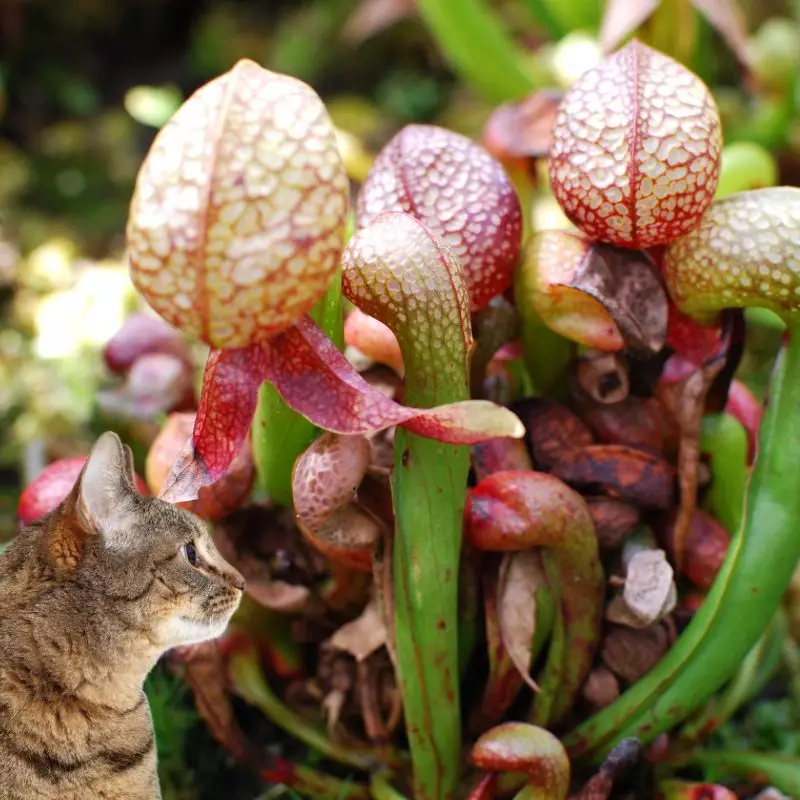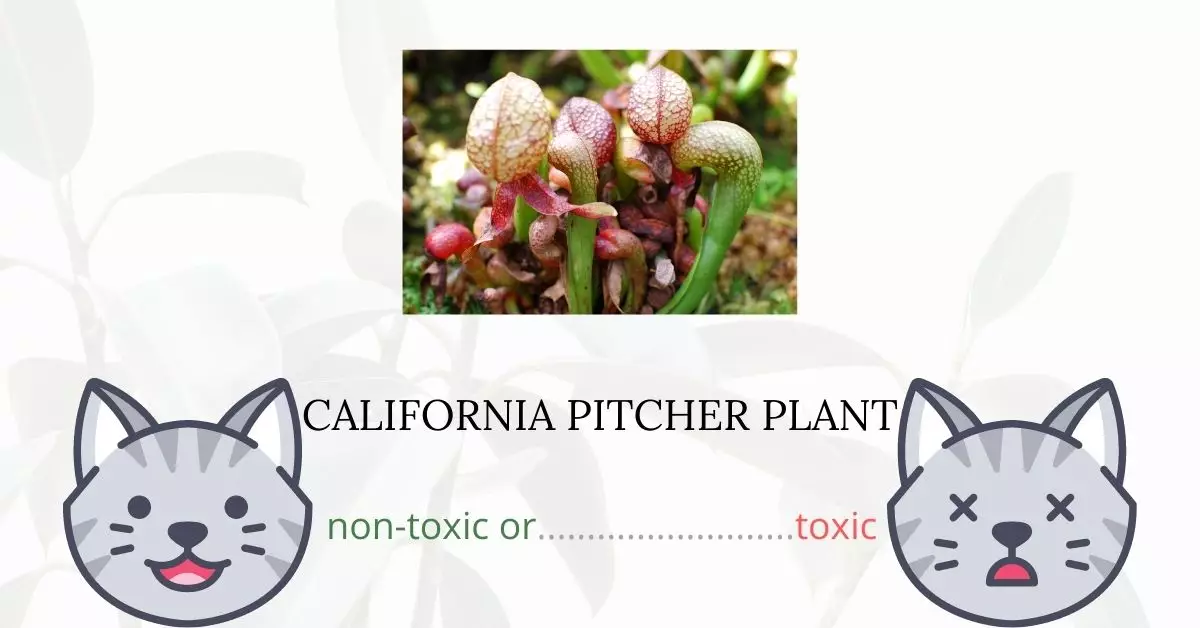No, the California pitcher plant is not toxic to cats.
This article was meticulously written in collaboration with a team of experienced DVMs (doctors of veterinary medicine). Leveraging their expert insights, we strive to provide readers with accurate and up-to-date information regarding the potential risks associated with various plants, with a special focus on the California Pitcher Plant in this piece. To further ensure accuracy, our research also draws from high-authority websites such as the ASPCA and PetMD.
Notably, the American Society for the Prevention of Cruelty to Animals (ASPCA) has listed the California Pitcher Plant as non-toxic for dogs, cats, and horses. However, does this mean cats can freely consume the California pitcher plant? Continue reading to delve deeper into this topic.
Can Cats Eat California Pitcher Plant?

As previously stated, California pitcher plants are not toxic to cats. If you have a cat, they are regarded as safe to bring home. Pitcher plants are quite low on the list of those to be concerned about when compared to several other typical houseplant species.
The important thing to remember as a cat parent is that cats should never be permitted to consume big amounts of plants since they are just not suited for it. Cats are carnivores and they do not have the enzymes to completely digest plant particles.
What is California Pitcher Plant?

The California pitcher plant is a carnivorous plant and the sole member of the genus Darlingtonia in the family Sarraceniaceae. This pitcher plant is endemic to Northern California and Oregon in the United States, where it grows in bogs and seeps with cold flowing water. Because of its scarcity in the field, this plant is classified as rare.
The name “cobra lily” comes from the tubular leaves’ resemblance to a rearing cobra, replete with forked leaves that range from yellow to purplish-green and resemble teeth or a serpent’s tongue.
Scientifically known as Darlingtonia californica, the California Pitcher plant is one of the most difficult carnivorous plants to cultivate because of its strict climatic requirements. They enjoy cool to warm daytime temperatures and chilly or cool nighttime temperatures. Cobra lilies thrive in bogs or streambanks fed by cold mountain water, and their roots thrive when kept cooler than the rest of the plant.
California Pitcher Plant is also known for its other common names such as Cobra Orchid, Cobra Plant, Cobra Lily, and Chrysamphora.
Keeping Cats Away From California Pitcher Plant

While California Pitcher plants may be rare, it is still best to be cautious and be aware of possible ways to keep your cats away from plants.
When it comes to your plant, one of the most important things to worry about is whether your cat attempts to nibble on it or even eat it. While pitcher plants are not harmful, they should not be consumed in excessive quantities since they might induce digestive disorders such as vomiting or diarrhea. You may discourage your cat from eating the plant by making it less appealing to them.
Bitter apple is a well-known repellant that cats despise that is not well-known to people. Another approach is to dilute vinegar into a solution and leave it on your plants; this will not hurt the pitcher plant but will repel your cats.
Plants to Avoid For Your Cats
If you are a cat owner and unsure if the plants growing in your yard are harmful to your cats, check out this list of toxic plants for cats. You can also check our list of non-toxic plants for cats.





